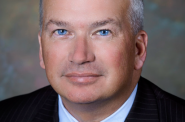Lautenschlager’s Fast Ones – Past Speeding Tickets Raise Residency Issues
The biggest skirt in state law enforcement likes to skirt the law, it seems.
Attorney General Peg Lautenschlager received speeding tickets in 1998 and 2000 when she was a U. S. Attorney. It appears from first glance that she plays light and fast with the law, whether on the road or at home
In each of the tickets – one in 1998, and two in 2000 – Lautenschlager listed a home address of 252 Sheboygan St, Fond du Lac.
The speeding tickets all took place during her 7-year tenure as U.S. Attorney for the Western District of Wisconsin from 1993 to 2001. The address is her domicile; she would probably deny it was her residence during that time, although one has reason to wonder.
You see, the U.S. Code regulates the residency of U.S. Attorneys with this provision: “each United States attorney shall reside in the district for which he is appointed.” The only exceptions are for U.S. Attorneys in crowded New York and the District of Columbia, where they must reside within 20 miles.
It would seem that Lautenschlager was pulling a fast one, then, residing in Fond du Lac which is decidedly not part of the Western District of Wisconsin.
Exploits a Loophole
But there is a technicality that Lautenschlager must have exploited to maintain her Fond du Lac address. The out comes from a 1979 memorandum of opinion.
“The term ‘residence’ generally refers to physical presence only, and not to legal domicile or voting residence, and therefore, such requirement could be satisfied by rental of an apartment in the district and occupancy there during the workweek, and it is not necessary to change voting registration,” according to an exception to the residency rule.
A person “can have only one domicile, but may have more than one residence or no residence at all.” {This is why the homeless can vote.]
Fond du Lac was likely her domicile and residence during her U.S. Attorney days, also – and that could raise some intriguing questions about her ethics regarding residency requirements.
“Peg knew she had to live in the Western District, but she lived in Fond du Lac,” said an individual who had professional dealings with her department during her tenure. The individual, who has asked not to be named, said Lautenschlager would often have meetings in Milwaukee, rather than Madison, since it was more convenient to Fond du Lac.
This strains at the exception’s requirement of “occupancy there [in the district] during the workweek.”
The residency requirement dates to 1896. According to the memorandum authorizing the residency exception in a 1979 request, “it appears from the legislative history that the purpose of the residency requirement was to ensure the availability of the attorneys. … Congressional concern focused on the attorneys’ physical presence within the district, not on legal domicile.”
Must Live In District
“When I served it was made very clear that you had to live in the district,” according to Tom Schneider, who served as U.S. Attorney for the Eastern District of Wisconsin during the same time as Lautenschlager’s term. Both were appointed by President Clinton.
Schneider did not face the difficulties that must have confronted Lautenschlager. He was a resident of the district when appointed. His Shorewood home was close to his office in the Federal Building in Milwaukee. Lautenschlager, however, had young children in school, and a police officer husband. Relocating to the Western District would have been difficult and perhaps economically challenging. It may have been disruptive to the children’s schooling, and the family’s personal life. If that was the case, the ambitious Lautenschlager should have turned down the job.
Instead, she played the system, and had the best of both worlds – an undisturbed home life, and a powerful steppingstone job. And look what we’ve got now.
Does Peggy’s Case Fit the Bill?
The exception Lautenschlager exploited is a footnote to 28 U.S. Code Section 545(a).
The law states the residency requirements for the U.S. Attorney, and provides residency exceptions of 20 miles outside the district for attorneys in the District of Columbia and New York It also calls for all Assistant U.S. Attorneys to live within 25 miles of their districts. That’s it.
The exception Lautenschlager apparently relied on was a 1979 case. The facts seem much different than Lautenschlager’s situation.
Leon Ulmann, then Deputy Assistant Attorney General who issued the memorandum wrote, “in our opinion, the residency requirement … would be satisfied if Mr. A rents an apartment in the … district and lives there during the workweek.” [Emphasis added.]
This seems quite different from the Lautenschlager situation, where the U.S. Attorney for the Western District of Wisconsin served seven years without relocating. Are we to seriously expect that she only saw her young children and her working husband during the weekends, as the memorandum seems to require? It strains credulity. A review of Lautenschlager’s mileage records from her U.S. Attorney days would seem in order, although they were not made available at the time of this writing.
Milwaukeeworld.com has asked Attorney General Lautenschlager for her comment on this and other stories, and has not received a response.
(Jim Johnson contributed to this report)
© 2004 Michael J. A. Horne
Lautenschlager’s Favorite Lawyer
Who does Attorney General Peggy Lautenschlager call when she’s in a traffic jam? The answer: Attorney Daniel Philip Bach. Bach was probably the first person to receive a phone call from the A.G. after her drunk driving arrest, February 24th. He also serves as Lautenschlager’s Deputy Attorney General. He was Assistant U.S. Attorney when Lautenschlager was U.S. Attorney for the Western District of Wisconsin. On December 13, 2000, he was listed as Lautenschlager’s defense attorney in a Racine County freeway speeding case (16-19 mph over limit.) Bach got the charge amended to “Speedometer Violations.” This is unusual, since Assistant U.S. Attorneys don’t usually practice traffic law while waiting to become Deputy Attorney Generals. What a special attorney-client relationship we have here.
On the Campaign Trail
City Attorney Grant Langley held a two-hour fundraiser at the Milwaukee Athletic Club Monday, March 22nd. He drew such usuals as John Finerty, Kevin Lyons and Marty Schreiber. Finerty had a chance to catch up with his son, yet another attorney, Dan Finerty. Judge David Halbrooks was there because he is everywhere. Others included Einar Tangen, Vince Bobot, Chris Jaekels and Bruce Schrimpf, who is a Brigadier General on the weekends. Schrimpf handles tavern license cases for the city, and suggests a lot of tavern owners would not have to face neighborhood objections if they were proactive, good neighbors in the first place. “Hold a party for the neighbors,” he suggests. Langley didn’t have anything particular to say. Jon Richards was there as was his fiancée Andrea Rowe. She says she’s not working for H. Carl Mueller anymore but is concentrating on the Langley campaign. Life must be tremendously exciting for her. So did Jon merely propose, or did he also come up with a ring? “Oh, yeah. I’ve got the hardware,” she exclaimed, flashing a gem that was as sparkling as her eyes. Beer and wine were served. Nothing else was. … The former Stanley Stone home on Lake Drive was the site of a high-class fundraiser for Tom Barrett. The home, now the McSweeney residence, is French inspired through and through, and is for sale. Guests, including Marie Kohler, Frank Cumberbatch, Jeff Bentoff, Julie Penman and others too numerous to mention including John Finerty, and Judge Jeff Wagner, dined on smoked salmon, cheeses, delightful appetizers and a staggering array of delightful wines stored in a locked basement cellar off of an authentic replica of a Parisian café. It was the only fundraiser in memory to rely upon real wine glasses, glass plates, and genuine silver flatware. The house is for sale.. At the party we asked Shirley Krug if the assembly caucus scandal might thwart her chances for Congress. “There is absolutely no chance of it,” she said. Mike Grebe was at the party, too, bringing a little republican support to Barrett. Barbara Boxer was also there, as was Judge David Halbrooks, who is everywhere. … Lena Taylor could be stuck in the assembly forever now that Spencer Coggs is State Senator. Ms. Taylor might consider moving into the district being vacated by Sen. Gwen Moore in her quest for Congress.
Have We Got a Deal for You! – Hotels to Share Profits
According to a study by Comptroller W. Martin “Wally” Morics, the city would see profit sharing by 2006, the hotel’s first year of operation, if the hotel’s occupancy were 93%, a pretty hard number for a first-year hotel to achieve, especially as the estimated occupancy is 63%.
By 2008, in the hotel’s third year, revenue sharing will kick in once occupancy reaches 101%. “Not Possible,” the comptroller’s report notes.
Quest for a Blockbuster: Egyptian Dignitaries Visit Milwaukee
A reception was held at City Hall Friday, March 26th for Mr. Sabry Abdel-Aziz Ebrahim Khater, the Chief Executive of Egyptian Antiquities, Egyptologist Ashraf Okasha and other distinguished visitors on their first visit to the United States. They were in Milwaukee for the opening of The Quest for Immortality Treasures of Ancient Egypt, which opened Sunday, March 28th at The Milwaukee Public Museum. The show will have its only Midwest appearance here out of 9 American cities. It is the largest collection of Egyptian antiquities to ever travel to this country. Ald. Michael Murphy, perhaps presaging his desired role as Common Council President did a very conscientious job of properly pronouncing the unfamiliar names of the visitors, and did so to their general approbation while Aldermen Joe Dudzik and Willie Wade looked on. Thirty thousand tickets have already been sold for the event, which expects to draw 2320,000 through its August run.
Mr. Khater, the director of antiquities, delivered a brief but inspired speech on the significance of the artifacts and of art and religion. “All religions are one – Christian, Muslim, Jewish,” he said, explaining that the simple rhythms of night and day, drought and flood and similar polarities lie at the base of all belief systems. The Virgin Egyptian god Isis, for example, finds a counterpart in the Virgin Mary. Mr. Khater has a grace of manner and a demeanor one would expect from an individual with such an important job. He praised Milwaukee’s beauty, which was a gracious thing to do on a dreary March day.. He added, “I would very much like a Milwaukee beer.” Alas, the refreshments at city hall were limited to water, orange, apple or cranberry juices. We are a different city nowadays. Attendees included Jack and Patti McKeithan and David Meissner, now back on the Journal Communications board. His suggestion for JRN stock? “Buy it and lock it up. My concern now is to make sure the company stays headquartered here.”
Later the Milwaukee Public Museum held an opening reception for museum employees, a sort of dry run attended by about 500. Employees got three tickets for free beer or wine, with a cash bar to follow. Dr. Michael D. Stafford, the museum’s new President/CEO was there, of course, as was longtime MPM Egyptologist Carter Lupton. Amy Chionchio, V.P. of Audience Development and Special Projects noted that the one year’s worth of Tuesday Afternoon meetings she held with staff from all departments led to a stronger institution. As far as the exhibit – well, you’ll have to go yourself. It’s hard to compress 4000 years into words. One thing that is notable – not only has man always produced art, man has always produced art of surpassing beauty. You’ll get an eyeful at the MPM. Tickets are $18.50 and include museum admission and an audio tour, with “family” and “adult” messages. I was disappointed with the adult tour, because I was expecting racy language.
Political Contributions Tracker
Displaying political contributions between people mentioned in this story. Learn more.
- July 1, 2019 - Vincent Bobot received $1,000 from Martin Schreiber
- December 19, 2018 - Tom Barrett received $400 from Jeff Bentoff
- April 11, 2018 - Tom Barrett received $400 from John Finerty
- December 21, 2017 - Tom Barrett received $400 from Martin Schreiber
- December 14, 2017 - Tom Barrett received $400 from Jeff Bentoff
- November 13, 2017 - Tom Barrett received $100 from Carl Mueller
- September 14, 2017 - Tom Barrett received $50 from Vincent Bobot
- March 29, 2017 - Tom Barrett received $400 from John Finerty
- March 30, 2016 - Tom Barrett received $100 from Carl Mueller
- March 29, 2016 - Tom Barrett received $100 from Julie Penman
- March 29, 2016 - Michael Murphy received $100 from Jeff Bentoff
- March 28, 2016 - Michael Murphy received $50 from Vincent Bobot
- March 28, 2016 - Michael Murphy received $500 from Wally Morics
- March 28, 2016 - Michael Murphy received $100 from Carl Mueller
- March 23, 2016 - Michael Murphy received $200 from John Finerty
- March 22, 2016 - Michael Murphy received $300 from Martin Schreiber
- March 20, 2016 - Tom Barrett received $100 from Jeff Bentoff
- March 9, 2016 - Tom Barrett received $500 from John Finerty
- March 9, 2016 - Tom Barrett received $100 from Carl Mueller
- February 25, 2016 - Tom Barrett received $500 from Jeff Bentoff
- February 1, 2016 - Tom Barrett received $400 from Tom Schneider
- January 30, 2016 - Tom Barrett received $1,000 from Martin Schreiber
- January 27, 2016 - Tom Barrett received $400 from Martin Schreiber
- January 15, 2016 - Tom Barrett received $100 from Amy Chionchio
- December 28, 2015 - Tom Barrett received $250 from John Finerty
- December 22, 2015 - Tom Barrett received $400 from Jeff Bentoff
- November 11, 2015 - Tom Barrett received $100 from Carl Mueller
- November 2, 2015 - Tom Barrett received $130 from Carl Mueller
- November 2, 2015 - Tom Barrett received $1,000 from Carl Mueller
The Roundup
-
Conservative Power Rises in Senate
 May 18th, 2015 by Steven Walters
May 18th, 2015 by Steven Walters
-
Buffett Tour on Hold
 Jun 27th, 2005 by Michael Horne
Jun 27th, 2005 by Michael Horne
-
Museum’s Wish List
 Jun 20th, 2005 by Michael Horne
Jun 20th, 2005 by Michael Horne
















